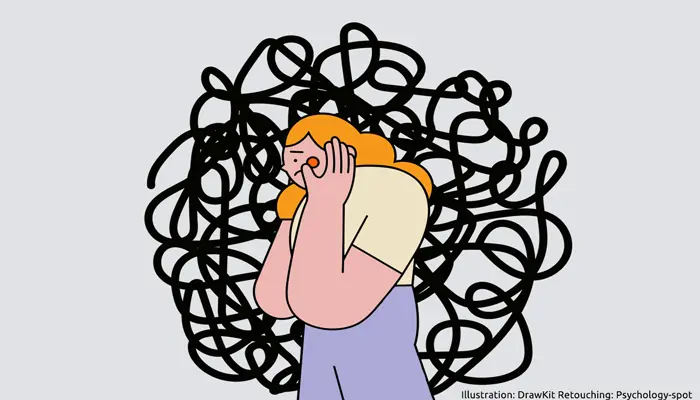
There is a widespread myth that we have all heard at some point, especially when we are having a hard time: what doesn’t kill you, makes you stronger. Without a doubt, resilience is built on the pillars of difficult experiences, those that force us to develop a strength that we did not think we had or that push us beyond our limits.
However, one thing is the resilience that springs from difficult situations and quite another is the psychological impact that traumatic events can have. In fact, a new study has revealed that traumatic experiences don’t always make us stronger. Sometimes just the opposite happens.
What doesn’t kill you doesn’t always make you stronger
A research conducted at the University of Texas analyzed data from more than 1,200 climate change survivors over two decades. It found that people’s mental faculties decline after experiencing natural disasters and extreme weather events that profoundly alter their lives.
These psychologists followed people who lived through hurricanes, floods, droughts, extreme winters and industrial emergencies in the Houston area between 2000 and 2020. They concluded that the old adage “what doesn’t kill you, makes you stronger” isn’t quite right. In fact, mental health suffers even more due to the cumulative impact of traumatic events. In those cases, mental well-being drops drastically.
A similar study conducted at Brown University came to the same conclusion. After analyzing the traumatic experiences of people before and after living through the sixth most powerful earthquake recorded in Chile, the researchers found that those who had experienced previous traumatic events, such as the loss of a loved one, were more likely to suffer from mental health problems.
In most cases, traumatic situations create a sense of learned helplessness that makes people more vulnerable to the next setback. Getting over a traumatic event is not a guarantee that something similar will not happen again. If these stressful situations are repeated at too fast a rate and we cannot absorb them or overcome their impact, the chances are high that they will weaken our mental health. The repeated blows add up and undermine our emotional balance.
In summary, highly stressful situations from the past, whether experienced individually or collectively, can make us more vulnerable to trauma and increase the chances that we will develop a mental disorder, such as depression, anxiety, post-traumatic stress or an addiction.
How to protect ourselves from the impact of traumatic events?
Above all, it is important to differentiate manageable stressful situations from traumatic experiences that we cannot manage. Manageable stressors are usually less severe, which allows us to implement different coping strategies to deal with that situation, without exceeding our ability to manage what happens. These situations can have great potential for growth since they force you to get out of your comfort zone, but at the same time they do not generate a state of extreme anguish.
On the other hand, the traumatic situations that we cannot manage are usually of a more extreme nature, such as rape, war or a natural disaster. These events not only usually take us by surprise, but can even exceed our coping capacity, generating a high level of emotional distress that puts our mental health on the borderline and shakes our worldview and belief system. These types of traumatic events have a greater destructive power, it will take longer to recover and we may need psychological help to get ahead.
In any case, it is important to remember that when things go wrong, we tend to believe that this painful experience will somehow inspire resilience and help us to be better or stronger. During the first year of the pandemic, for example, we thought that “we would come out stronger”, but this didn’t happen.
We must be aware that it is not the traumatic situations that change and strengthen us, but the way we deal with them. Suffering is not a kind of enlightenment in itself. If we want our pain to make sense, so that it can be uplifting in some way, we must make sure that we find that meaning and not resign ourselves to passively suffering in anticipation of a mystical revelation.
We cannot escape some traumatic experiences and many times we cannot shield ourselves from their emotional blow, but we can always try to find meaning in them to include them in our vital narrative and prevent them from ultimately undermining our mental health.
Sources:
Sansom, G. T. et. Al. (2022) Compounding impacts of hazard exposures on mental health in Houston, TX. Natural Hazards; 111: 2809–2818.
Fernandez, C. A. et. Al. (2020) Assessing the relationship between psychosocial stressors and psychiatric resilience among Chilean disaster survivors. BJ Psych; 217(5).



